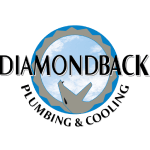Choosing a proper heating, ventilation, and air conditioning (HVAC) system for your home can be difficult. Not only is there a dizzying array of makes and models available, but if you’re looking for a cooling solution, you also have the choice between air conditioning and a heat pump.
If you need clarification on a heat pump vs AC, it’s essential to understand the differences and similarities between the two options. Here, we look at the characteristics, pros, and cons of each so you can make an informed choice that’s right for you and your home.
What is a heat pump?
A heat pump is a heating and cooling system that transfers heat from one place to another. Rather than generating heat, heat pumps work on the principle of heat transfer.
In cooling mode, a heat pump works similarly to an air conditioner, extracting the heat from indoor air and transferring it to the outside of your home.
Pros and cons of a heat pump
Heat pumps can extract heat from the outside air in temperatures as low as -15 degrees Celsius, and some models can perform at an even lower temperature.
They use a refrigerant that absorbs heat from the air and compresses it, increasing its temperature. The heat pump then releases the heat through coils and a blower.
When comparing a heat pump vs central air, heat pumps are especially effective in milder climates where the weather is not harsh. They offer an advantage over air conditioners because they combine your home’s heating and cooling systems into one unit.
Pros
• Energy efficiency: Heat pumps are energy efficient and can deliver more for the energy they consume compared to other systems. This energy efficiency contributes to lower energy bills and a reduced environmental impact.
• Space conscious: A heat pump combines heating and cooling systems in a single unit, taking up less room.
Cons
• May require additional heating: Although heat pumps are effective in mild climates, if you live in a region that experiences frigid temperatures, you may require supplemental heating or a backup heating source to ensure your home is not chilly in the winter.
What is an air conditioner?
An air conditioner, also called an AC, is a cooling system designed to regulate and lower indoor air temperature, creating a more comfortable environment. The primary function of an air conditioner is to take the heat from the air indoors and send it outside, leaving the inside space cooler.
When thinking about an air conditioner and heat pump, air conditioners are somewhat similar in that they use refrigerant, operating through refrigeration. The refrigerant can easily change between liquid and gas states, and this ability facilitates the heat transfer process.
Pros and cons of an air conditioner
An air conditioner is ideal for keeping your room or home cool and comfortable in summer.
Pros
• Variety: You can typically find air conditioners in various types, such as central air conditioning systems, split systems, or smaller window-mounted units.
• Improved air quality: Air conditioners can filter and remove airborne particles, such as pet dander, pollen, and dust. Filtering these particles out of the air can help to reduce allergies and respiratory issues, such as asthma and chest infections.
Cons
• Energy consumption: Air conditioners are relatively energy intensive, leading to increased energy consumption and higher utility bills.
• Noise and air disruption: Air conditioners are noisier than heat pumps. Window-mounted units, in particular, can have significant noise levels and small, focused streams of cold air.
Installation costs
When it comes to a heat pump vs AC, heat pumps tend to have higher installation costs than air conditioning units. This is because of the additional components, complexity, and time involved in installing a heat pump.
Because a heat pump provides both heating and cooling, which requires elements such as auxiliary heating elements, a reversing valve, and a more sophisticated control system. In addition, heat pump installation usually requires the addition of ductwork or other modifications to the existing heating system.
All of this adds up to higher initial purchase and installation costs for heat pumps over air conditioners.
Running costs
The running cost of an air conditioner and heat pump can vary depending on elements, such as:
• Your local climate
• How hot or cold you like in your home
• The make and model of a unit
• The insulation in your home
• Your patterns of use
However, air conditioners do have slightly lower operating costs when compared to the cooling mode of a heat pump.
Maintenance
When choosing between a heat pump or air conditioner, consider that they have similar maintenance needs. The only difference may be in the local availability of maintenance professionals.
However, if there are fewer heat pump technicians in your area, they may charge a premium for their time and expertise.
Durability
The durability of a heat pump vs AC is usually dictated by the quality of the make and model, how well the system is maintained, and how much it is used during the year.
The best option depends on your living situation
An air conditioner unit may be your most cost-effective option in warmer climates, where you may only need heating sometimes. In areas of the country that regularly experience extreme cold, an air conditioner and heating combo may be your best bet.
On the other hand, if you need the option of regular heating and cooling, and do not often experience extremes of cold, then a heat pump’s dual heating and cooling capability is a cost-effective, efficient option.
Need a new unit installed? Get in touch with Diamondback today!
